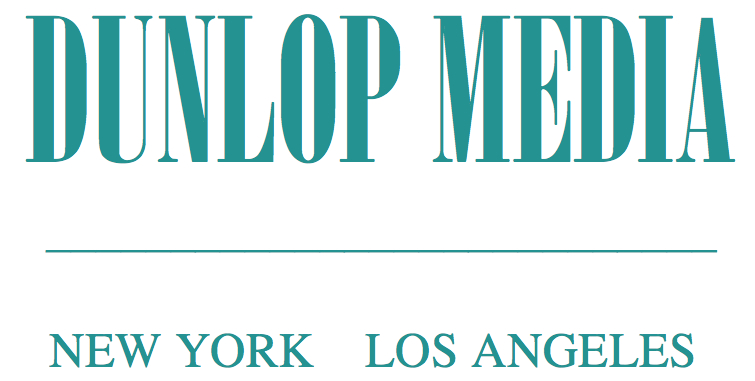Our toxic political culture could take a cue from two men whose friendship transcended their passionate differences.
Media commentary by Steve Dunlop
“Do as adversaries do in law,” says Tranio in the first act of William Shakespeare’s The Taming of the Shrew. “Strive mightily, but eat and drink as friends.”
I first encountered that phrase when I was five or six years old, on the menu of The Castle, a dining institution my family used to frequent when visiting relatives in upstate New York. Alas, poor Yorick - The Castle is long gone. And so is Tranio’s sentiment.
As the brutal presidential primary of 2016 attested, opponents in the public forum these days can barely find enough common ground to stand on the same stage with each other, let alone break bread together.
William F. Buckley Jr. and Norman Mailer on Buckley's PBS public affairs program, Firing Line, 1968. Screenshot by Washington Free Beacon.
But within living memory - including the 1960’s, an era even more politically rancorous than our own - some of society’s most entrenched adversaries socialized across the aisle on a regular basis, sharing not just dialogue but a degree of camaraderie. This is historian Kevin M. Schultz’s central argument in Buckley and Mailer: The Difficult Friendship that Shaped the Sixties (Norton, 2015). It’s not an entertaining book, but it is timely, if only as a reminder that the current tone of our public discourse wasn’t always so sour.
If you need a quick fill: Both William F. Buckley Jr. (1925-2008) Norman Mailer (1923-2007) were major 20th century intellectuals: journalists, columnists, novelists, and publishers. But in almost every other respect, they were polar opposites. Buckley was “On the Right” (the title of his nationally syndicated column); Mailer was on the left. Buckley was an observant Catholic; Mailer, a secular Jew.
In 1955, Buckley founded National Review magazine, the modern conservative movement along with it, and became that cause’s most potent voice until his death. Mailer helped found The Village Voice, also in 1955, and his iconoclastic “radical-as-hipster” ethic burnished his reputation as the enfant terrible of the Left. Buckley launched a quixotic campaign for mayor of New York in 1965; Mailer did the same thing four years later.
“We somehow have gotten the idea that if our disagreements don’t degenerate into shouting matches or fist fights, that our convictions must not be deeply held. That’s nonsense. ”
The two first encountered each other in 1962, at a spirited debate in Chicago. A promoter billed it as “the forceful philosopher of the New Conservatism against America’s angry young man and Leading Radical.” As Chris Tucker noted in the Dallas Morning News, the debate is when the pair “took one another’s measure and realized they could be not only foils but friends.”
They sparred over many issues. But each was smart enough to realize that his own fiery point of view needed the other’s for oxygen. Even as they tried to convert each other to their respective causes, their mutual admiration grew. “He is a genius,” Buckley would later confess of Mailer. “And I am not.”
Mailer returned the compliment - appearing on Buckley’s Firing Line TV program several times, and even making a donation to National Review. According to Tucker, Mailer viewed himself and Buckley as “prophetic voices, standing outside the mainstream, offering critiques from a higher moral plane.”
In 1968, ABC News rejected Buckley’s suggestion that he debate Mailer during live coverage of the political conventions. In Mailer’s stead, the network offered up liberal author and intellectual Gore Vidal. Whereas the Buckley-Mailer relationship was founded on shared respect, Buckley and Vidal shared nothing but a patrician manner and deep animosity for each other.
The fireworks, as recounted in the 2015 documentary The Best of Enemies, made for great television - and as moderator Howard K. Smith noted, “a little more heat and a little less light” than usual.
Buckley and Mailer would be a 400-page footnote to the tumult of the 1960’s except for the fact that their brand of friendship so rarely happens anymore. We may lament this trend, but seldom do we recognize that the ongoing cantonization of our media world helped give birth to it.
The ability to curate your life and your politics in an online echo chamber, shutting out opposing voices and views, is a quite recent phenomenon in the history of human affairs. If the only people you ever meet on Facebook are those who already agree with you, why bother nurturing the art of bridge-building?
We somehow have gotten the idea that if our disagreements don’t degenerate into shouting matches or fist fights, that our convictions must not be deeply held. That’s nonsense. Peer into the pre-Twitter past, and you’ll see that the political and media worlds are rife with examples of major figures who could disagree without being disagreeable. Jack Kirkpatrick and Shana Alexander. Pat Buchanan and Tom Braden. And in the case of Ronald Reagan and Tip O’Neill, Edward M. Kennedy and Orrin Hatch, or more recently, Bill Clinton and George W. Bush, they even got things done together.
Like many public figures, Buckley and Mailer were far too busy to develop a sustained social life together. But their longstanding comity reminds us of what we need to rediscover in our government, our media, and our society, before it’s lost forever. For when the debates are over, the ballots are cast, the sets are struck and the balloons come down… Tranio and Shakespeare were right.


